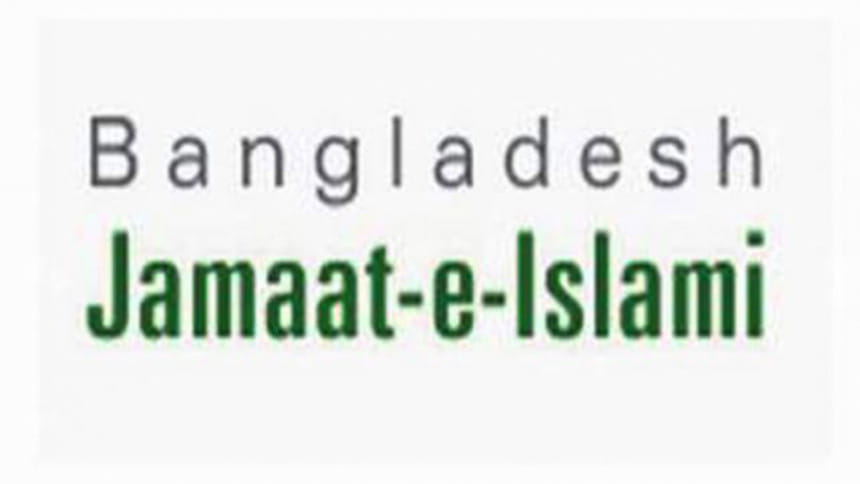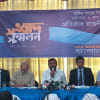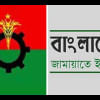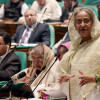Jamaat seeks a new garb

The Jamaat-e-Islami has formed a five-member high-powered committee to devise a strategy for emerging as a new political party with a different name, say its insiders.
The development comes amid a reported rift in the party over reforming its charter and apologising for its role in the 1971 Liberation War.
The body, constituted by the Jamaat's executive council recently, is led by party Secretary General Shafiqur Rahman. The other members include Syed Abdullah Mohammad Taher, Hamidur Rahman Azad and Mia Golam Parwar, party insiders told this correspondent yesterday.
The committee would work on the formation of a “new party”, its constitution and other strategies to make them “acceptable to the country's people”, they said.
The Daily Star could not confirm the deadline for submitting the committee report.
With the launch of the new party, all activities of Jamaat as a political party would come to an end, said one of its central leaders, wishing not to be named.
However, Jamaat would still exist and it would solely concentrate on social activities, he added.
Another leader said Jamaat would take lessons from different Islamist parties and their movements in countries like Egypt, Turkey and Tunisia for reemerging.
Meanwhile, the Jamaat yesterday expelled a member of Majlish-e-Shura, for his involvement in “anti-party activities”.
The leader, Majibur Rahman Monju, was also a former president of Islami Chhatra Shibir, Jamaat's pro-student organisation, party sources said.
Besides, a Jamaat leader in Dinajpur stepped down from the party yesterday, terming it an “anti-liberation element”.
Bakhtiar Uddin, general secretary of Jamaat Bherberi Union, tendered his resignation letter to the party's ameer in Khansama upazila, party sources said.
The moves came a day after Barrister Abdur Razzaq, who held the post of assistant secretary general, resigned from Jamaat, citing the party's failure to apologise for its role in the Liberation War and bring reforms to its charter.
During the war in 1971, Jamaat had sided with Pakistan and opposed Bangladesh's birth.
In his resignation letter, the lawyer, who defended senior Jamaat leaders like Ghulam Azam, Motiur Rahman Nizami, Delwar Hossain Sayedee and Ali Ahsan Mohammad Mojaheed at the International Crimes Tribunal, said he wanted to “bring fundamental changes to Jamaat's objectives, plans and programmess in view of the change in world politics”.
However, there was no response.
These senior leaders were convicted of war crimes.
'OLD WINE IN NEW BOTTLE'
At a programme in the capital, security analyst Maj Gen (retd) Abdur Rashid yesterday said Jamaat's popularity came down to “zero level”. That's why it was trying to work out new strategies for survival, he said.
Talking to reporters on the Jamaat's move, Awami League General Secretary Obaidul Quader, yesterday said, “It's nothing but old wine in a new bottle. If the old ideology exists, a new name won't bring any change.”
There has been a longstanding rift between Jamaat's young and old leaders over leadership and future strategies, said insiders in Jamaat.
In an emergency meeting in December last year, Jamaat's central executive council, comprising mid-level leaders, had decided in principle that the party should apologise for its role in the war and develop an image of a pro-Bangladesh party with a new name.
But senior leaders, who are in its highest policy-making body Majlish-e-Shoora, had stood firm on their pre-1971 principles, arguing that forgoing the existing ideology and adopting a new name would be the final nail in the party's coffin.
Many of the party leaders born after the country's independence want the party to apologise to the nation and get a new name for rebuilding its image.
Jamaat has remained largely inactive in the country's political arena over the last few years. Jamaat's top five leaders were handed down punishment for war crimes.
Since then, a section of Jamaat-Shibir men has been calling for the party's apologising to the nation to rebuild its image.
Many of its leaders and activists are still in jail in connection with different cases.
Jamaat is a component of the BNP-led 20-party alliance. Last year, the Election Commission scrapped Jamaat's registration as a political party after it had failed to fulfill the prerequisites.

 For all latest news, follow The Daily Star's Google News channel.
For all latest news, follow The Daily Star's Google News channel. 








Comments